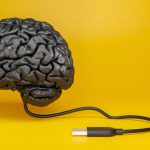A new study brought to light by the New York Times has provided evidence that yoga has compounded benefits for people suffering with memory loss leading to Alzheimer’s by measuring brain function and memory. The study, partly funded by the Alzheimer’s Research and Prevention Foundation, split 29 middle-aged and over adults into two groups:
- The first group attended an established memory and brain-training programme for an hour each week, and were assigned daily exercises lasting no longer than 15 minutes.
- The second group practised Kundalini Yoga (due to it’s accessible style) and were taught the Kirtan Kriya that they were asked to practice 15 minutes a day, for an even time commitment with Group 1.
The Results?
After twelve weeks of observing their respective programs, each of the participants were subjected to a sophisticated brain scan. Here’s what they found:
- All participants showed improved brain function.
- All participants showed improved communication between the language and memory centers of the brain.
- Participants from Group 2 showed improved mood.
- Participants from Group 2 performed better on visuospatial memory tests than those in Group 1.
- Participants from Group 2 showed additional improvement in their ability to focus their attention.
- Participants from Group 2 displayed higher levels of biochemicals associated with improved brain health.
Improved Brain Function
The Times article mentions the researchers’ response:
“We were a bit surprised by the magnitude” of the brain effects, said Dr. Helen Lavretsky, a professor of psychiatry at U.C.L.A. who oversaw the study.
With this study completed, it paves the way for more conclusive research that can discover exactly why meditation and yoga achieved the results they did. In the meantime, feel free to find a quiet corner, your favourite meditation recording, and enjoy the benefits for yourself!
See Also: An Intro to the Different Kinds of Meditation (Part One)













